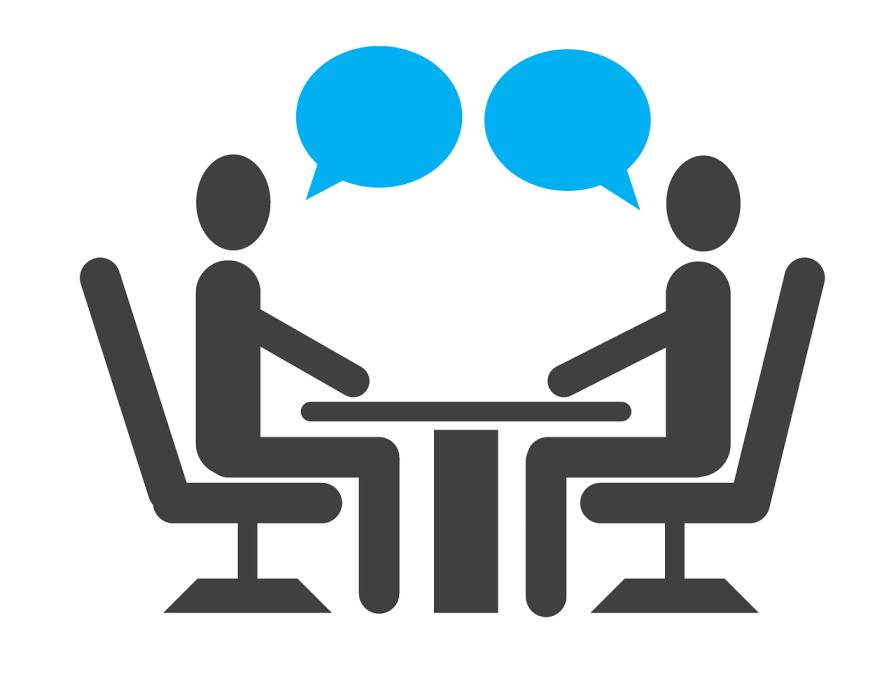Being interviewed to fill a vacancy generates nerves and fears, since it is the moment in which the recruiter evaluates your potential to be part of his organization. The following 10 tips will help you feel confident about landing the job you seek.
1. Prepare your key points.
The only way to distinguish yourself from other applicants for the vacancy is to make your job skills known. Therefore, before the interview prepare yourself, think about what you are good at professionally and how you managed to stand out in your previous functions.
2. Research the company.
Find out all the necessary information about the company: history, news, direct competition, objectives and values. Applicants who arrive at interviews unprepared show little interest in the company they want to join.
3. Make your interests known.
Your interviewer wants to know who you are on a professional and personal level. If you like writing, photography, sports activities, or another hobby, mention these activities during the interview. This will allow the interviewer to better match the skills you have for the job you are applying for.
4. Dress ad hoc to the position you are applying for.
Depending on the job you apply for, you should wear clothing in harmony with that profession. There are jobs that seek formality from the first impression, so wearing a suit (in the case of men) and a tailored suit (in the case of women), is the most appropriate.
However, take into account that the work culture is different in each company, so it is important to know the company to know how to dress, but whatever the case, make sure that the clothes are in good condition and perfectly ironed. The first impression is what counts.
5. Be confident.
Sometimes a job interview can be very stressful, especially if it’s for a position you really want to get. Showing nervousness is a natural sign of emotion, but it is also interpreted as a lack of preparation. Before you begin, take a deep breath and be yourself. When you introduce yourself, smile and give a light handshake that expresses your confidence, without ever losing eye contact; All these elements will generate empathy and show interest towards your interviewer.
6. Be respectful.
There is no reason to worry if you are prepared with enough information about the position you are applying for; Additionally, interviewers often assess your level of confidence and positive attitude as assets that will set you apart from other applicants. Do not appear imposing or arrogant, since a personality of this type shows low empathy and little concern for the other.
7. Keep your resume up to date.
Make sure it is updated with the most recent date and the correct format in relation to your profession. An actuary will use statistical data; a designer will be required to disclose her work book; A person with little work experience can list the volunteers in which she has participated.
Also, rely on digital tools to make your CV more visible, without extending beyond two pages. Remember to have digital backups in PDF and make sure that it contains only your most relevant jobs and experiences, so that your future employers are aware of your outstanding achievements and results.
Do not forget to bring a couple of copies of your CV, it does not matter if you have previously sent them or left (registered) them in the employment portal where the vacancy was or in that of the company itself. It is usual for recruiters to ask you for a physical copy to make notes and support during the interview.
8. Mention the way in which you would improve your areas of opportunity.
Talking about yourself and explaining your strengths are fundamental aspects that you should highlight when talking to your interviewer, but nobody is good at everything, so you should also mention the areas in which you can improve, ending with the path you will take to accomplish this task.
It is common to make the mistake of hiding certain defects in a positive way, such as saying “I am a perfectionist”, or “a workaholic”, or describing yourself in a vague way and using adjectives such as motivated, passionate, creative, dynamic, strategic, organized, to name a few.
The problem with these clichés is that you come across as inauthentic, and rather than describing yourself in a positive way, you make recruiters mistrust you. It is also advisable to apply this advice when writing your CV.
9. Talk about your career goals.
Share with the interviewer the goals you want to achieve if you get the job opportunity. This will reflect that you are prepared and motivated to continue with your job growth.
10. Ask questions.
Interviewers are your first source to offer answers to your questions. It’s important to know that if you don’t ask anything at the end or during your interview, you may appear disinterested. We suggest you ask the interviewer how he came to the company, what aspects he likes the most, as well as some suggestions to achieve success in the company.
